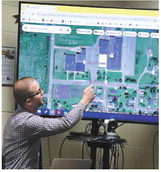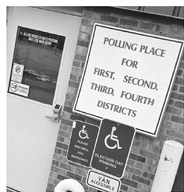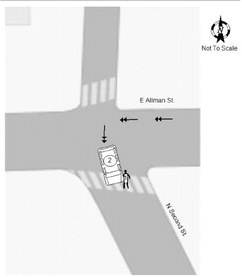Insurance change will hit school employees in their pocketbooks
Medford School district employees will see a jump in out-of-pocket expenses for healthcare in 2025.
After a lengthy discussion at Monday’s school board meeting, members approved going with a plan option that will combine a premium increase with a 10% co-payment after the deductible is reached to a cap of $1,000 for single plans and $2,000 in family plans.
Currently those covered under the school district’s health insurance do not pay any copayment after the deductible is met. The district currently offers low deductible plans of $1,600 for singles and $3,200 for families and high deductible plans of $5,500 for individuals and $11,000 for families.
Regardless of which plan the district chose, the lower deductibles were set to increase by $50 for individuals and $100 for families due to federal regulations. This increase will be partially offset by a planned increase in the Health Savings Account contribution from the district.
Under the new plan, the low deductibles will be $1,650 for individuals and $3,300 for families. After the deductible is met, the employee or family member will have to pay 10% of the cost of any procedure, prescription or visit up to a maximum of $1,000 for individual coverage and $2,000 for family coverage.
The insurance change was driven by the district having a 108% utilization rate in the past year. This means for that for every dollar paid in insurance premiums, the district health insurance provider, Security Health Plan, reported that it paid out $108 in expenses.
In order to renew at the current plan level, the district’s premium cost would have gone up 15.72%. Last year the district’s current plan cost $7,871,692. The proposed increase would have raised that cost to $9,108,967.
This is about $400,000 more than what was budgeted in the 2024-2025 budget. In preparing the budget, district finance director Audra Brooks plans for a 10% increase.
The district’s insurance advisor Cory Toth-LaPointe of Spectrum recommended a plan to implement 10% copayments. Under this plan option, premiums would go up by 10.61% or about $8.7 million a year.
A third option was raised after last month’s finance committee meeting to look at a 20% copay up to the maximum out of pocket of $1,000 for individuals and $2,000 for families. This would have people reaching their maximums faster. This option would have resulted in a 9.39% increase with a total premium of $8.6 million.
In addition to the district’s options, employees had the choice to go with a limited plan that includes just Marshfield Clinic and UW Health Systems or a broader network that also incudes Aspirus providers and others. A third option is a much larger pool of providers is only available to qualifying Rural Virtual Academy employees who are outside of the immediate area. There is a slight decrease in premiums for the employees choosing a narrow plan and a higher cost for those on the broadest plan.
The school district picks up the lions share of insurance premiums paying 89% of the premium for teachers and administrators and about 80% of the premium for support staff.
The proposals were presented at the finance committee meeting on Monday afternoon with committee members expressing hesitancy in willingness to pass higher costs onto district employees.
Board president Dave Fleegel said the game the insurance company seems to be playing is wanting the employees to have more skin in the game.
The justification for increasing premiums is based on usage, additional cost for users serves as a deterrent for people using the insurance benefits.
At the finance committee meeting, Fleegel brought up a way to reduce utilization would be to encourage people to use Taylored Family Care as an option — referring to the private pay provider in Medford.
Finance committee chairman Brian Hallgren said he was unwilling to pass a big increase in out-of-pocket costs onto the employees. “It is not only the premium increase, but we have this damned deductible thing. You are talking 2,000 bucks on a family,” he said.
The cost of simply doing nothing and renewing under the existing plan would add $400,000 in cost to the district as a whole. The district’s total budget is about $38 million.
“It doesn’t make us feel good, but this is the recommendation we bring,” Brooks said, noting that with the budget needing to get approved that night, she does not have a place to pull that money from. She was also opposed to passing an out of balance budget with the district looking at going to bonding later this year if the referendum passes.
“I struggle with it,” Hallgren said of passing along the additional cost to district employees, noting that wage increases are not covering the additional health insurance costs.
Zuleger questioned if there was anything the district could do on the backside to give a boost to employees, specifically to help those who have spent the most with the copayments.
Brooks said doing so would be a bonus and would be taxable. She also noted that it would have to be for all employees and couldn’t be just for ones who paid more in costs.
“Every year we just take another little chunk away from the employees and we take a chunk away and we give a little chunk somewhere else,” said board member Steve Deml.
After a lengthy discussion at the finance meeting, a 3-1 vote with Hallgren opposed was approved to send it to the full school board with the recommendation to have a 10% copay after the deductible is met.
At the board meeting Monday night, many of the same discussion points were raised.
“There is no great answer here,” Fleegel said. Board member Don Everhard asked if it would be impossible to find the $400,000 in the budget needed to cover the premium increase at the renewal rate.
“I don’t have that money in the budget,” Brooks said, noting that if the board wanted to do that, they would need to make cuts and at this point in the year it would be difficult to do that.
“Teachers in general don’t make super high salaries,” Everhard said, noting that going in with lower salaries they struggle with the added costs.
“I wish there was a way we could do something to help in the financial struggles many of them face,” Everhard said, noting their raises aren’t even covering the cost of insurance.
Everhard also singled out the healthcare industry describing it as being a shell game. “If they didn’t charge so much we wouldn’t be over the top,” he said.
It was noted that costs are higher in this region of the state especially and that the healthcare providers are tied to the insurance providers with Aspirus and Security Health.
There was further discussion about ways to encourage use of lower-cost independent providers such as Taylored Family Care, but Brooks noted that providing incentives to go there would be reflected as a taxable benefit.
Hallgren also noted that it is the large claim cases that drive a lot of a usage rates, noting the difference in costs for services in central Wisconsin versus elsewhere.
“Something is going to have to give,” Fleegel said, noting the only time the district has seen a drop in insurance was when usage was close to 80%.
“They want to encourage people to not use the insurance,” Fleegel said.
“We can’t keep balancing on the backs of employees,” said board member John Zuleger.
After nearly an hour of discussion at the board meeting, members voted 6 to 3 to approve the insurance with implementing a 10% copay after the deductible is met. Voting no were Aemus Balsis, Everhard, and Halgren. Voting yes were Corey Dassow, Fleegel, Deml, Kurt Werner, Jodi Nuernberger, and Zuleger.




